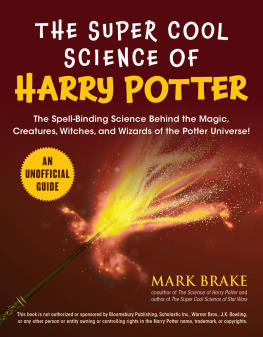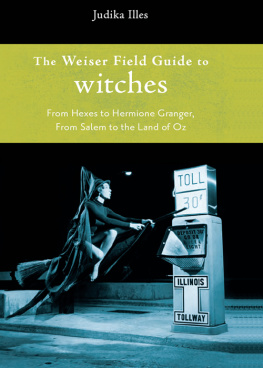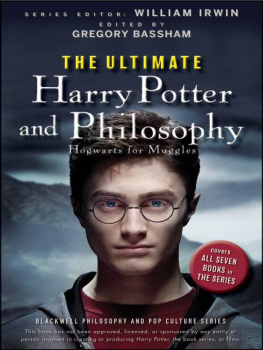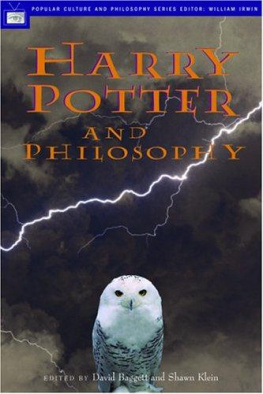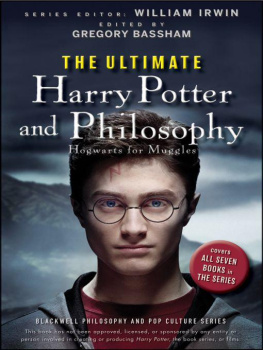
Table of Contents
Also by Christopher E. Bell
American Idolatry: Celebrity, Commodity and
Reality Television (McFarland, 2010)
LIBRARY OF CONGRESS CATALOGUING-IN-PUBLICATION DATA
Hermione Granger saves the world : essays on the feminist heroine of Hogwarts / edited by Christopher E. Bell.
p. cm.
Includes bibliographic references and index.
ISBN 978-0-7864-7137-9
1. Rowling, J.K.Criticism and interpretation. 2. Rowling, J.K.CharactersHermione Granger. 3. Granger, Hermione (Fictitous character) 4. Feminism in literature. I. Bell, Christopher E., 1974
PR6068.O93Z73226 2012
823'.914dc23 2012024861
BRITISH LIBRARY CATALOGUING DATA ARE AVAILABLE
2012 Christopher E. Bell. All rights reserved
No part of this book may be reproduced or transmitted in any form or by any means, electronic or mechanical, including photocopying or recording, or by any information storage and retrieval system, without permission in writing from the publisher.
Front cover images 2012 Shutterstock
McFarland & Company, Inc., Publishers
Box 611, Jefferson, North Carolina 28640
www.mcfarlandpub.com
For Megan, Olivia, and
real-life Hermiones everywhere
Acknowledgments
As is customary in the world of books, this page is here to thank a bunch of people who, more than likely, are not you. If you want to go ahead and skip to the Introduction, no one will take it personally.
First, thank you Megan Elizabeth Bell, a woman with the patience of Job, who continues to want to be married to her husband, even though he ruins every bit of popular culture she loves by analyzing it to death and then writing books about it.
Of course, thanks Olivia, for being the sweetest little pigeon in the world. And H & K, for making the family that much livelier.
Thanks aplenty go to the staff of the Center for Excellence in Communication, particularly to Tony Mitchell, Jesse Perez, Becka Horton and Brandon Ortega, who became impromptu quote transcribers at the drop of a hat.
Thanks to Dr. Kyle Kontour and Dr. J. Richard Stevens, for letting ideas bounce off of them from time to time.
Thanks to Dr. Barbara Gaddis and Dr. David Nelson for supporting the continuing scholarly aspirations of a rookie professor.
Of course, thanks to Dale, for being Dale.
Finally, thanks always to family and friends, both close and far, for all the love and support you continue to show.
Introduction
CHRISTOPHER E. BELL*
There are plenty of books that will tell you exactly why you cannot be a feminist.
This book is not one of them.
Those books like to think that if youre white, you cant be a feminist. If youve got money, you cant be a feminist. If youve settled down into motherhood and/or domesticity, you cant be a feminist. If youre middle or upper class, you cant be a feminist. And, of course, if youre male, you cant possibly be a feminist.
On the opposite end of the spectrum, there are plenty of other books that would like you to stop using the term feminism altogether, mostly because the authors of those books dont know what feminism is, cant explain it and have never experienced it. The Rush Limbaughs of the world believe that feminists have paid their dues. Theyve been married two or three times; theyve had two or three abortions; theyve done everything that feminism asked them to do. They have cut men out of their lives; they have devoted themselves to causes and careers (MediaMatters 2008). Some go so far as to define feminism as:
an aggressive counter-reaction intended to protect the threatened reproductive and sexual interests of middle-class, middle-aged women in a free sexual marketplace ... having a society base its morals and social structure upon the primitive reproductive urgings of one sex alone degrades women, degrades men, degrades civilization and, in fact, turns the western humanist world into nothing more than a secular and feminised version of an Islamic fundamentalist state under Sharia law [theantifeminist.com].
Lets be clear and blunt, right here at the outset: the position of each of these people is fundamentally flawed. On the one hand, one of the most legitimate arguments those that are critical of feminism use against feminists is that when feminists say feminist what they really mean is, women who think like we do. Historically, feminisms tendency toward exclusionism has been one of its major weaknesses as an ideology. Some feminists just dont want the tent to be wide enough to cover people who may disagree with some of their tenets. On the other hand, one of the most legitimate arguments feminists use against those that claim to oppose feminism is that, when presented with a list of things feminists believe, opponents often agree with the majority of feminist claims. It would appear that the truth is, no one much knows what feminism even is.
So before we go much farther, we need to answer some seemingly simple, yet incredibly complex, questions: what is this feminism thing? What is a feminist? Am I a feminist? Are you?
Let me take those questions a bit out of order. The answer to the third question is, Yes. The answer to the fourth question is, Probably. Lets find out.
To build a working definition so that we may answer the fourth question, a bit of history. Note that this is not intended to be an all-encompassing or thorough examination of feminist ideology. It has absolutely been simplified and generalized; think of it as a primerone which necessarily invites disagreement, as we will come to see.
The term feminism encompasses a variety of theories, philosophies, and societal organizational structures across a multitude of Western societies. (One of the key concepts to get ones head around is the fact that there is no such thing as a monolithic definition of feminism.) It is a term that both men and women have historically feared, because of its socially-coded negative connotations. Feminists are often portrayed in media as female extremistsnot about equal rights for women but about the feminization of the American male, an ideology that is anti-family and anti-father-and virtually guaranteed to bring about the wholesale destruction of the American family (Howse 2010). Some people, in turn, call the feminist movement the death of chivalry. This saying, among others, became an early method of undercutting the movement and upholding traditional, patriarchal social norms: by declaring the empowerment of women to be a threat (Fiano 2008). Because of this, feminism has become what we might call a tainted term, usually taken out of original context, veiled instead by vague and inaccurate convolutions. Because of an ignorant, concerted campaign of propaganda directed at its core, feminism has become a social enigma. It is an ideology in constant need of clarification.
At its very base level, contrary to what some might have everyone believe, feminism does not intend to promote extreme female dominance over (or mere liberation from) men. The vast majority of feminist ideologies strive for what we might call gender equilibrium. The basis of feminism lies in social structures of power. Think of it as a scale, or more accurately, as a spectrum. On one side, there is matriarchal society, in which women hold the most power. This is a social structure occasionally seen among select Native American tribes and other world cultures. On the other side of the spectrum, there is patriarchal society, in which men hold the most power. The patriarchal social structure is dominant in most Western cultures. Directly in the middle, between these polar opposite male/female social structures, is gender equilibrium, in which both males and females share equally in the blessings and the burdens of society. They maintain an equal amount of power. This equilibriumand the struggle to achieve itis what motivates feminism.
Next page





